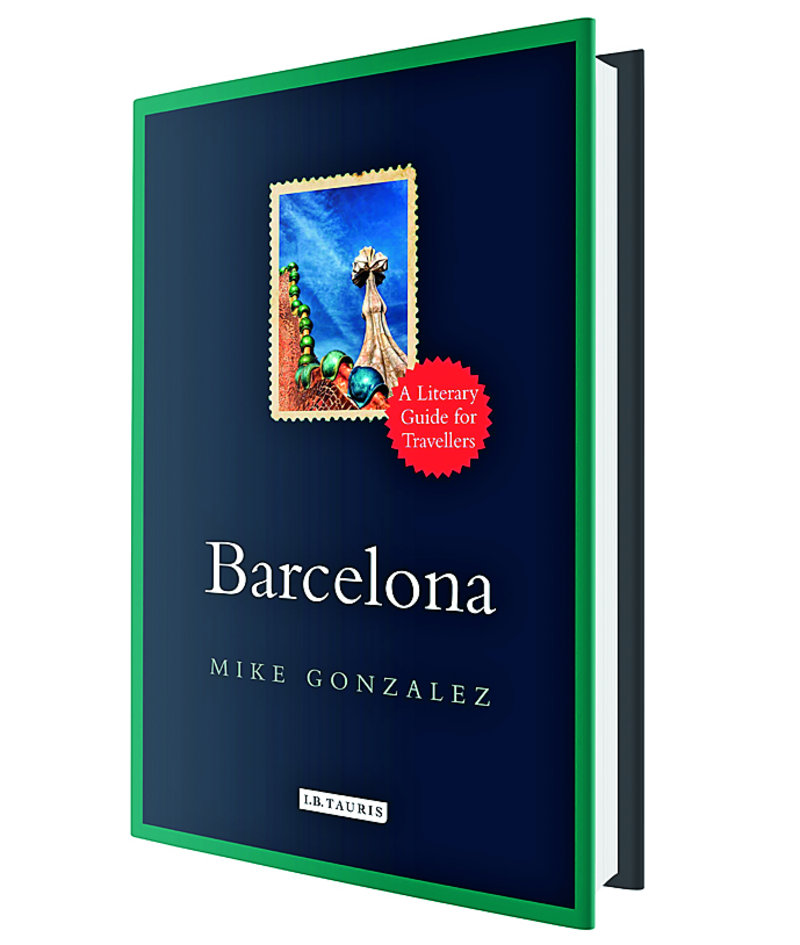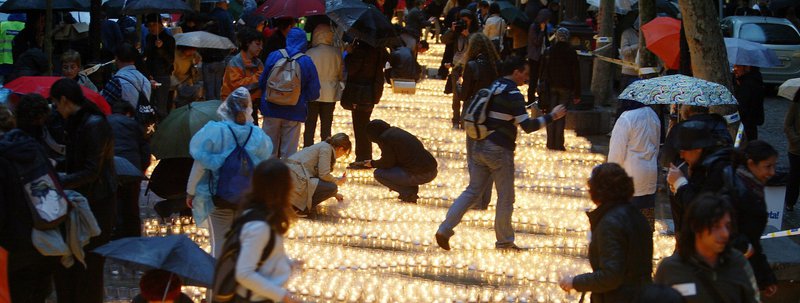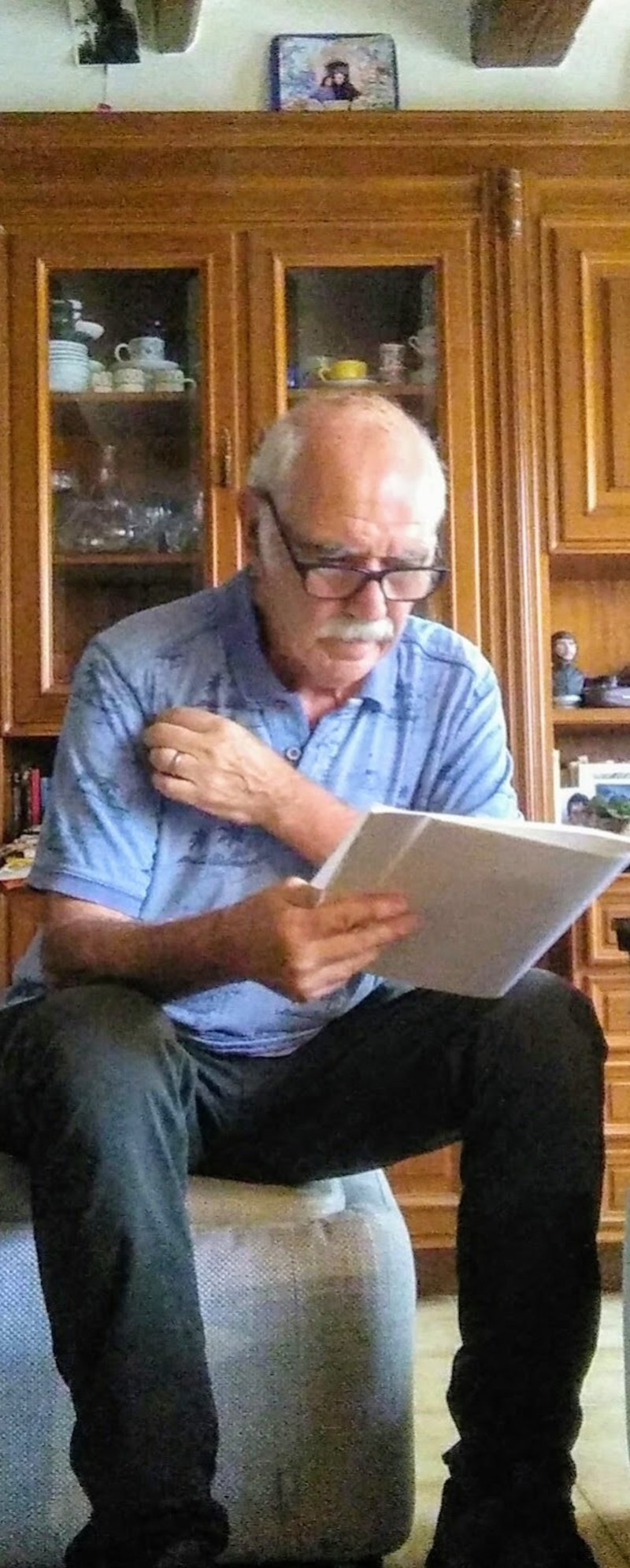The literature of Barcelona
This is a book about books, books in Catalan and in Castilian (and a few in French and English) from or about Barcelona. It is more, too: Mike Gonzalez tells the city’s history through its books and explains the city’s literature with reference to its history
I have an interest to declare: I have known Mike Gonzalez for some 25 years and wrote a blurb for the back of his book. This, of course, obliges me to be severe on Gonzalez’s Barcelona, one in a series of “Literary Guides for Travellers”, with other titles covering Madrid, Andalusia, Scotland, Iceland and Sicily, etc.
The Whispering City
There is little to fault in Gonzalez’s selection of authors. After an introductory walk down the Rambles, touching on Lorca and Rubén Darío, he strolls through the Barri Gòtic, with Colm Tóibín and Ruiz Zafón (Sant Felip Neri) and Ildefonso Falcones (Santa Maria del Mar). Then he moves into the chronological sequence that structures the rest of the book, starting with Sánchez Piñol’s Victus, an account of the 1714 conquest of the city by Felipe V’s troops. He skilfully covers the background to 1714, including Els segadors, Catalunya’s national anthem of violent resistance that came out of the peasants’ revolt of 1640/41; then moves forward in time to describe the fateful effects of 1714, the suppression of Catalan language, culture and political power. At his best, as with Victus, Gonzalez combines literary criticism and social history. He gives us an idea of what Victus is like as a novel and uses the novel to explain the historical events it describes. And thus the ‘traveler’, i.e. the tourist with cultural aspirations, can wander through the Born, come across the Fossar de les Moreres and understand something of this emotive monument to the 1714 dead.
Narcís Oller’s Gold Fever (1890-92) and Ignacio Agustí’s later Mariona Rebull are discussed in terms of the rise in the 19th century of a national bourgeoisie, whose wealth was based in great part on riches from slave plantations in Cuba and whose surplus capital was spent on the modernista houses of the Eixample that today provide so much revenue to the city’s hoteliers. Gonzalez claims, for these novels and Eduardo Mendoza’s 1975 City of Marvels about the same period, that: “Barcelona becomes much more than a mere setting. It is, in each case, an actor and a presence, influencing and shaping the characters.” The Barcelona we know now was taking form; its novels have helped mould visitors’ and natives’ ideas of the modern city.
The list of writers covered is long: Rusiñol, Verdaguer (Ode to Barcelona), the anarchist poet Salvat-Papasseit, Sagarra, Montserrat Roig, Víctor Mora (Els plàtans de Barcelona, The Plane-trees of Barcelona), Marsé, Vázquez Montalbán, etc. Gonzalez takes his readers through the Civil War (Joan Sales, Mercè Rodoreda, Orwell), then “the whispering city” as he calls the chapter on the Franco years after the English title of Sara Moliner’s 2016 novel Don de lenguas, and to the transition and Olympic Games. And he concludes the book with Quim Monzó’s comic, dark stories of alienation and Teresa Solana’s (different, but comic and dark too) satirical novels set in a Barcelona converted, in her words, into a “monstrous theme park”. Nevertheless, Gonzalez avers, Barcelona’s literature “speaks the truth to power”. Tant de bó!
Throughout, Gonzalez enlivens the cultural visitor’s walks through the city with interesting literary tit-bits: Lorca invited the flower-sellers of the Rambles to a performance of his play Doña Rosita; Anthony Burgess’s inaccurate and lively 1977 article, entitled Homage to Barcelona (when, when will tiresome sub-editors tire of this lazy heading?); or Jules Verne, who “may well have taken Monturiol as the model for the Captain Nemo of 20,000 Leagues Under the Sea”. Gonzalez uses the literary reference to explain the utopian socialism of Narcís Monturiol, the inventor of the submarine, and his friend Ildefons Cerdà, who designed the Eixample. He has good snippets of information, too: I was amazed to read that Guimerà’s classic 1890s play, Terra baixa, had been filmed by the Nazi Leni Riefenstahl (no reflection on Guimerà).
Oh dear!
This fine literary-historical text is also marred, alas, by a number of problems. The book has really not been worked on enough by author or editors. There is some repetition and loose phrasing. And strikingly, it mixes Barcelona’s two languages, for example, “Paseo de Gracia and Avinguda de las Corts Catalans”, one road in Spanish, the other in Catalan, and in Catalan the ‘las’ and the ‘Catalans’ are both wrong. Oh dear, it only takes a Google or a dictionary… But does it matter? One, two or three errors certainly don’t, but here there are too many and they give an overall feel of sloppiness. Often names are mis-spelt (Bishop Torras i Bagas; Heinz Creeh – it was Chez) or accents wrong (Tomás instead of Tomàs). There are factual errors, too. And there are some clangers: Lluís Llach has not been known as Luis Llach outside the pages of La Razón since Franco times. It’s a pity, for readers may be led by so many errors to mistrust other well-founded comments.
Though Barcelona, A Literary Guide for Travellers, may not always be accurate, it gives a newcomer to the city’s considerable literary output a long list of fine fiction in two languages to read. What I hope to have made clear in this review is that Mike Gonzalez successfully inserts this literature in its social context. He shows how the city’s history produces the books and the books explain the city.
book review
Walking encyclopedia
Antonio González Cruz, Mike Gonzalez’s father, was born in the carrer Hospital in the Raval, “the very heart of radical Barcelona”. A Communist, he left after the Civil War defeat for exile in Britain. Thus, this book, as Mike explains in the introduction, honours a debt to his father, who could only return to Spain in 1978.
Mike Gonzalez was a Professor in Latin American studies at Glasgow University for some 40 years. Active in the socialist movement, he has been a frequent and inspirational speaker at congresses and meetings all over the world. A walking encyclopedia on Latin American literature, he is also a tireless activist in support of the continent’s liberation movements.
He is the author of countless articles and books on Nicaragua, Bolivia, Chile and Venezuela, among several others. Che Guevara and the Cuban Revolution (2004) discusses the greatness of Che and the limitations of his strategy for revolution. In Hugo Chávez, Socialist for the Twenty-first Century (2014), Gonzalez explains Venezuela’s Bolivarian Revolution.
In very active retirement in Altafulla, near Tarragona, Mike Gonzalez has recently published The last drop (Pluto 2016) on the world’s water crisis and, with co-author Marianella Yanes, The ebb of the pink tide (Pluto 2018) on the decline of the left in Latin America. Coming later this year is In the red corner: the Marxism of José Carlos Mariátegui (Haymarket), the Peruvian interpreter of Latin American reality.





